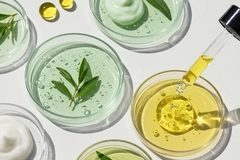Lubrizol investment expands fermentation capacity to scale biotech actives
Key takeaways
- Lubrizol is investing US$10 million to expand its fermentation production capacity by fivefold.
- The expansion supports the company’s strategy to accelerate sustainable, biotech-based ingredient manufacturing.
- The increased capacity strengthens Lubrizol’s ability to meet global demand and adapt to market needs.

Specialty chemicals manufacturer Lubrizol is investing US$10 million to expand its fermentation production capacity fivefold at its Center of Skin Care Excellence in Gavà, Spain. The investment is part of the company’s strategy to accelerate the production of environmentally sustainable, biotech-based ingredient manufacturing.
“By expanding our fermentation capacity, we are not only supporting the growth of high-performance active ingredients but also reinforcing our role as a strategic partner in delivering science-backed, environmentally responsible solutions,” says Bernardo Medeiros, VP at Lubrizol.
The project aligns with the company’s goal of combining science-backed efficacy with environmentally responsible production methods.
The Gavà facility was formerly home to Lipotec before Lubrizol acquired it in 2012. It plays a central role in the company’s Life Science Beauty business as a key innovation hub for developing and producing active ingredients for personal care applications.
Expanding capacity and reach
The expansion enhances Lubrizol’s ability to meet global demand for biotech-based cosmetic ingredients while maintaining sustainable production practices.
According to the company, the increased fermentation capacity will also allow for greater manufacturing flexibility.
Lubrizol says it can now more efficiently adapt to global and regional market needs. The company will scale its production according to customer demand and emerging formulation trends.
.webp) The expansion supports the company’s strategy to accelerate sustainable, biotech-based ingredient manufacturing.Beyond Lubrizol’s growth, Medeiros emphasizes that the expansion supports the broader shift toward responsible beauty innovation.
The expansion supports the company’s strategy to accelerate sustainable, biotech-based ingredient manufacturing.Beyond Lubrizol’s growth, Medeiros emphasizes that the expansion supports the broader shift toward responsible beauty innovation.
Fired up fermentation
Personal Care Insights previously covered how fermentation-based innovation enables companies to address consumers’ rising sustainability demands. Beauty ingredient company Seppic previously told us that bio-based ingredients respond to societal challenges in the cosmetic and health fields that demand more environmentally conscious products.
Earlier this year, the company unveiled plans for a new biotech laboratory, which was to be the company’s debut into fermented ingredients.
In July, biotech company Äio received a grant from the Estonian government to speed up production of its yeast-derived sustainable fat alternative for cosmetic formulations. The company upcycles agricultural byproducts, such as wood, into fats and oils through yeast fermentation.













